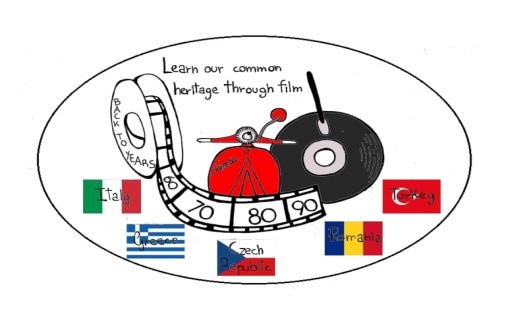Learn our common heritage through film
PROJECT SUMMARY
The main objective of the project is to help students understand, though the analysis of the films from different countries, about the common roots and common development of European societies and that the problems and issues that concern people in Europe are the same across countries and through time. Ultimately, the project partners are hoping to help students understand that exclusion and isolation is not the solution for the problems that European countries face but, instead, we need to work together, based on the values of tolerance, inclusion and freedom to shape our better future.

Objectives
- To enhance the dialogue among students about issues that are common across Europe and are especially relevant today with the influx of refugees from countries with war conflicts
- To improve the ability of students to present a story with the purpose of engaging the interest of their audience on the issues that are discussed
- To help students develop the values of tolerance, inclusion and freedom and to avoid discriminatory behavior.
- To incorporate the art forms in the curriculum and the European cultural heritage in school curriculums enhance Citizenship Education
- To promote intercultural cooperation and understanding
80 students and 40 teachers will participate directly in the project. Up to 200 students and 100 teachers are expected to participate indirectly.
There will five LTTAs in the project, each focusing on different time periods in the 20th century in Europe.
-In each country, students will watch 5 representative films coming from different time periods of that country and will analyze various factors related to the social structure of the country during that time period. -The areas of interest will be: Gender depiction in film across countries and time periods, Social status and relations between classes, Family relations and roles of family members, Social and economic deprivation, Depiction of refugees/outsiders.
-Students will receive training on video editing, storytelling, scriptwriting and storyboarding.
-Students will work in teams in order to create a documentary (5 in all, focusing on the differences and similarities of this issue between countries and time periods) regarding the theme of the particular group of movies where they will underline the socially important aspects derived from the films. The documentaries will have to be made collaboratively in mixed teams.
Tangible Results
-Production of 5 documentaries by the students about certain social issues and they are depicted in different European countries during the course of the 20th century. The documentaries will be freely available on paltform that the project will be disseminated in. The documentaries will be checked for copyright issues and permissions will be requested.
-Website and Social Media pages (e.g. Facebook) will be created in order to reach a large audience
-Posters will be created for each one of the documentaries
Intangible Results
-Students will increase their knowledge of other European countries’ history, societal development and culture
-Students will enhance their teamwork skills, their communication and language skills, their international understanding and intercultural understanding
-Students will understand European culture better and feel that they belong in a European family.
-Students will enhance their analytical and critical thinking skills as by teaching their peers in making documentaries utilizing the training, they received in the mobilities (peer-learning)
-Schools will improve their international connections, will build experience in exchanges and will be able to exchange good practice with other schools in Europe
-Teachers will learn how to incorporate art in the curriculum in order to help student improve their performance. Schools and teachers will improve their ability to organize and implement European projects and will be able to create partnerships with other schools for the purpose of exchanging good practices.
Teachers will improve their teamwork skills, their communication and language skills and international cooperation skills by managing a project with other teachers from Europe. The participating students will get in contact with an international environment that will help them improve skills like intercultural cooperation and cultural understanding that would be difficult to develop in their own countries
The international mobilities and collaboration will help students understand the differences and similarities of European countries and see the similar development of societies. They will also be more capable to understand how to behave in different environments than their own and be more tolerant of the behavior of people with different cultures. In addition, students will enhance their teamwork skills, their communication and language skills, their international understanding, understand European culture better and feel that they belong in a European family.
